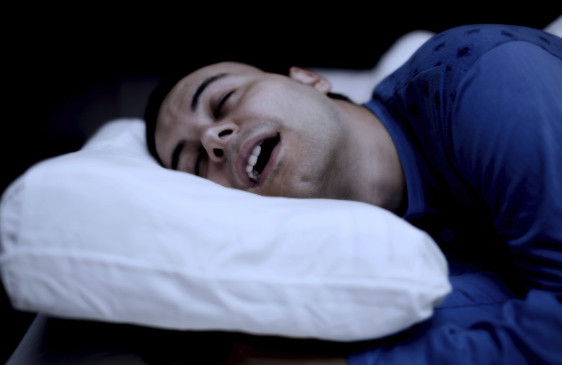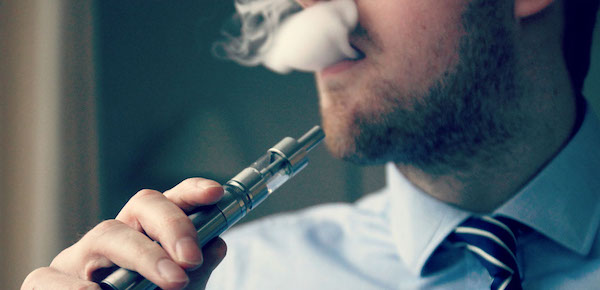We all know smoking is not good for our health and it leads to the death of millions of people worldwide both directly and indirectly. Smoking can cause a considerable number of problems & health risks, including cancer, depression, anxiety, heart disease, and many more.
Most people who smoke cigarettes view it as a way to ease them into sleep due to the perceived relaxing feel. However, this can disrupt your sleep leading you to a decrease in the overall quality of your sleep.
We’ve created this guide to inform you of the effect that smoking has on your sleep and what you can do to improve it.
How does smoking affect snoring?
There has been a strong case built that smoking plays a significant role in increasing snoring and also sleep apnoea. When you smoke, this gives off harmful chemicals and pollutants which enter your system and are irritants which can lead to your airways swelling.
It means that your airways become narrower so less air can flow in and out your throat, with this swelling mostly being concentrated to the soft tissues lining the nose and throat.
Further damage can also be caused to the lungs which can make it more difficult to breathe at night. As the tissues in your throat swell in size, this creates an increase in vibrations and the collapse of the airway can lead to sleep apnoea also developing.
It isn’t just limited to people who smoke directly but can also be a risk for those who are subjected to second-hand smoke especially for children who are even more vulnerable.
Nicotine, and its effect on sleep
Regular smokers will usually be addicted to the active ingredient, Nicotine. Which means that if you don’t’ get a steady dose, then you may begin to experience withdrawal symptoms which usually means that you become restless.
It’s often wrongly assumed that Nicotine has a calming effect when it has a stimulating effect. It's because it similarly increases your heart rate to caffeine and also leads to an increase in blood pressure and brain activity. These of course do not encourage deep and relaxing sleep.
Because of Nicotine’s addictive nature, once it enters your bloodstream, it is extremely fast acting. However, this also means that it begins to leave the body after just a few hours which leads to withdrawal symptoms.

These symptoms can also interrupt you from your sleep which can result in you not only getting fewer hours sleep, but also lower the quality of your sleep.
If sleep deprivation occurs over a long period, then this can lead to a decrease in your mood and ability to concentrate on tasks.
Smoking has also been linked to the disturbance of sleep architecture. Sleep architecture is the basic structure of sleep and is the pattern and order of sleep stages that you experience when you sleep through the night. Smoking increases the fragmentation of sleep which can also cause insomnia.
Through research, it has been proven that it takes smokers longer to fall asleep, referred to as sleep latency, and they also experience less deep sleep. Once a person has quit smoking the effect on sleep latency quickly diminishes leading to a rise in sleep quality.
Will I experience withdrawal?
The biggest worry that smokers have about quitting is that their sleeping problems may get worse due to withdrawal symptoms. Sleep disorders are often one of the most common withdrawal symptoms, and this can also be in the form of nightmares, difficulty falling asleep or interrupted sleep.
It's only temporary, meaning it will disappear after a few weeks leading to an improvement in your sleeping pattern.
How does vaping compare?
Vaping does reduce some of the health risks that are often associated with cigarettes, but the risk of sleep disruption remains because vaping still contains Nicotine which is the main culprit of sleep disturbance.
As long as the vaping liquid you use contains Nicotine it still has the capability affecting your sleep.

Other ways help you sleep whilst you quit smoking
Avoid Caffeine Before Bed
Caffeine can increase alertness, which you don’t want to be doing when you’re close to going to sleep. Caffeine can make it harder to fall asleep which will lead to a decrease in the number of hours sleep that you get.
Avoid Alcohol Before Bed
Alcohol may make you feel tired and ready for sleep, but it disturbs sleep later on through the night and can interfere with your REM sleep. Alcohol also dehydrates you while also making you need to go to the toilet more frequently which can also disturb you throughout the night.
Wind Down
If you find that when you’re quitting smoking, you find it difficult to fall asleep, then don’t just lie there tossing and turning. You need to wind your body down to prepare for sleep which could include reading a book or taking a warm bath to relax you.
Avoid Nicotine Substitutes Before Bed
Nicotine substitutes are often used to help to ease off Cigarettes. However, these products can also contain substances that interrupt sleep. So ideally you should avoid having these 2-3 hours before you plan on going to sleep.
Follow a routine
It’s advised that you go to sleep and wake up at the same time each day, even on weekends. The helps to regulate your Melatonin release which is the sleep hormone that relaxes your body and makes it easier to fall asleep.
Closing
It’s likely that you’ve already tried to quit smoking in the past but failed. You need to keep trying because it can commonly take a smoker a few attempts to fully kick the habit.
Luckily there are many different methods that you can incorporate including nicotine replacements, medications or therapy. You can use a combination of techniques which is especially ideal if going cold turkey isn’t for you.
The best thing to do is to speak to your doctor to get a full list of the available options because successfully quitting won’t just improve your sleep but also make you feel healthier and better rested.
